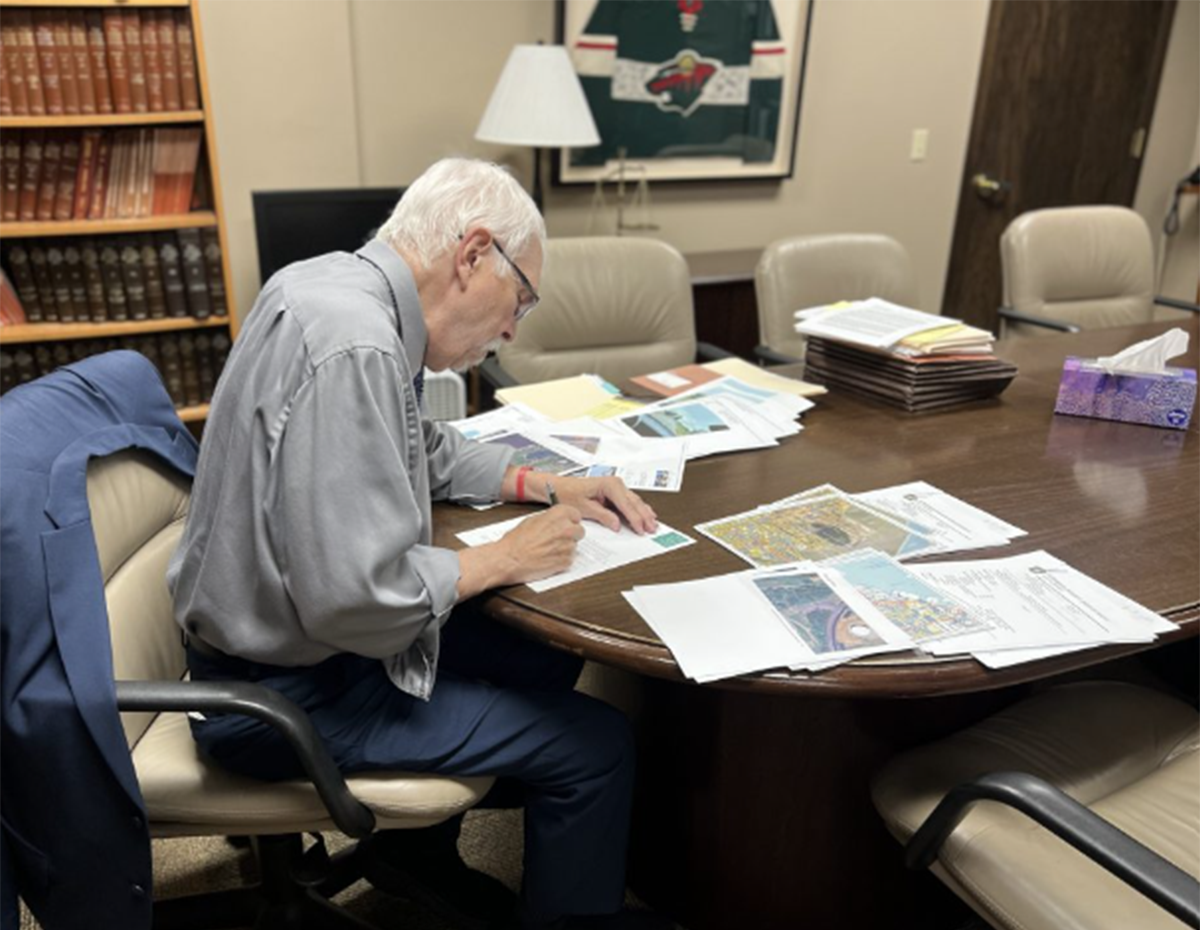 Chris Kemp
Chris KempWalking through the open doors of a transformed Zorn Arena Saturday morning, people entered a celebration of American Indian culture.
Vendors selling jewelry, clothing, music and crafts flanked the walls of the arena. In one corner, a line formed in front of a stand featuring fry bread tacos; in the center of the room, singers congregated around several tribal drums representing the Ho Chunk, Menominee, Ojibwe and other nations.
On one side, audience members packed into bleachers around 1:30 p.m., as the drums announced the entry of the dancers, who took the floor around the drummers’ circle.
These sights initiated the annual Honoring Education Powwow, which lasted from 11 a.m. until 10 p.m.
Senior Adam Terzich attended the powwow alone for his religions class, but said he was also curious to see what the ceremony was about.
“The music is really interesting, probably the most interesting part,” he said. “You can really tell that it means a lot, to the elders especially.”
Junior non-traditional student Nichole Ray had a booth set up in the vendors’ ring, where she was selling ribbon, fabric and homemade jingle dresses and shawls for the women dancers.
This was her fourth year participating in the Eau Claire powwow, Ray said. In addition to her booth, she has danced in powwows with the rest of her family.
“This is my life; I do this all the time,” she said.
Senior Chris Kedrowski is the president of the American Indian Student Association on campus, which hosts several cultural events during the year, including the powwow.
Kedrowski, of Oneida heritage, has been involved with AISA four years. He said his American Indian background helped him get into college. He initially joined AISA to “pay back” what his heritage has done for him, although that changed.
“Now I have a more personal connection to it,” he said.
Kedrowski said AISA had been planning the event in conjunction with Native American Awareness Month since the Folk Fair in November.
He said people who travel to powwows across the region often hear about the Eau Claire powwow through word-of-mouth. The annual event is also common knowledge with a lot of the participants.
“People know we have it every year,” Kedrowski said, “and we always have room for them.”
Ray said this year she knew people who made the trip from Platteville, Superior, the Twin Cities area and Iowa.
“We get them from all over,” she said.
One such traveler is Adrian Turtle King, 26, a member of the Lac du Flambeau Band of Ojibwe. King said he dances in at least two powwows every month, and his dancing has taken him to various places, including Eau Claire.
“I was here three or four years ago,” he said.
Wearing ceremonial feathered bustles on his back and arms, King danced the “men’s fancy,” an exhibition dance with a vigorous series of twisting, bowing and spinning movements.
He said the dance’s purpose is to rejuvenate the people back into dancing toward the end of the powwow.
One purpose of the powwow, King said, was to allow different tribes, or “drums,” to come together and share elements of each other’s cultures, such as language and music.
“Everyone’s kind of like a big family,” he said.
Ray added the experience was one that could be shared by everyone.
“The goal of the powwow is for American Indians to have a chance to practice their traditions,” she said, “and for non-Indians to participate in the culture.”
Sitting on the bleachers in the audience, Terzich said being able to see a traditional Native American ceremony on campus was a unique opportunity.
“I’m almost glad I came by myself,” he said. “I can just sit and soak it all in.”






